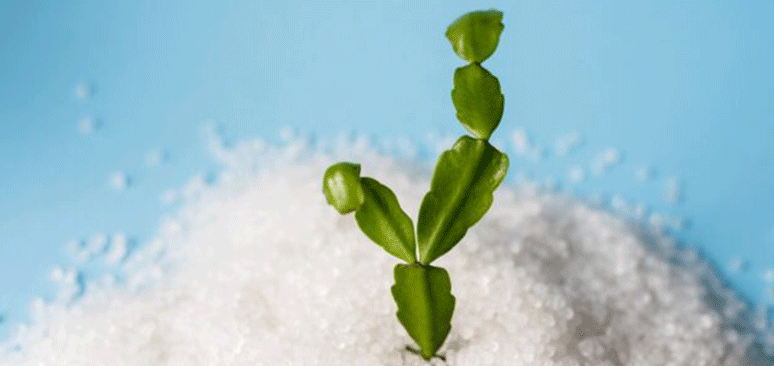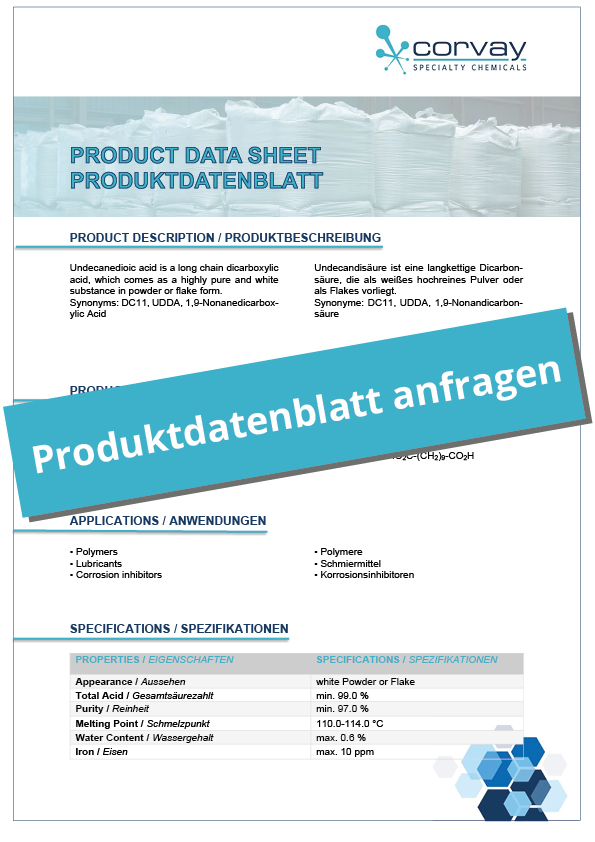
Polybutylene adipate terephthalate (PBAT)
PBAT
ADVANTAGES AND PROPERTIES OF PBAT:
Biodegradability:
PBAT is considered an environmentally friendly polymer as it is biodegradable and compostable under suitable conditions. It can be decomposed in industrial composting plants, breaking down into natural compounds such as water, carbon dioxide and biomass.
Flexibility and elasticity:
PBAT has good flexibility and elasticity, making it suitable for applications that require ductility and impact resistance.
Transparency and shine:
PBAT has a similar transparency and gloss to conventional plastics such as polyethylene (PE) or polypropylene (PP). This property enables applications where transparency is desired, such as packaging.
Good workability:
PBAT can be processed using standard plastics processing methods, including extrusion, injection molding and blow molding. It can be produced in various forms, including films, sheets, fibers and thermoformed products.
Compatibility with other polymers:
PBAT can be blended or coextruded with other polymers to modify its properties. For example, blending PBAT with other biodegradable polymers or additives can improve biodegradability or customize performance for specific applications.
CHEMICAL REGULATIONS:
Raw materials are REACH registered.
APPLICATIONS:
Packaging:
PBAT is often used for flexible packaging applications such as films, bags and pouches. Due to its good flexibility, transparency and sealability, it is suitable for various food packaging, compostable bags and agricultural films.
Disposable products:
PBAT is used in the production of disposable items such as cutlery, straws, cups and food containers. These items can be biodegradable and serve as an alternative to conventional single-use plastics.
Agriculture:
PBAT films are used in agriculture for mulch films, greenhouse covers and biodegradable soil applications. These films help regulate soil temperature, retain moisture and reduce the need for synthetic pesticides.
Hygiene products:
PBAT is used in the manufacture of biodegradable hygiene products such as diapers, sanitary towels and wet wipes.
Further applications:
PBAT has potential for other applications, including textiles, medical devices, adhesives and 3D printing.
PBAT is a promising biodegradable and compostable copolymer that can help reduce the environmental impact of plastic waste. Its versatile properties, miscibility with other polymers and compatibility with existing processing techniques make it suitable for a range of applications and offer a more sustainable alternative to conventional plastics.
APPLICATIONS:
PACKAGING:
STORAGE & SHELF LIFE:
DISCLAIMER
This information and all technical and other advice is based on the current knowledge and experience of Corvay Specialty Chemicals GmbH, Hannover, Germany. Corvay Specialty Chemicals GmbH assumes no liability for this information or advice, including the extent to which this information or advice may relate to intellectual property rights of third parties. Corvay Specialty Chemicals GmbH reserves the right to make changes to the information or advice at any time without prior or subsequent notice. Corvay Specialty Chemicals GmbH disclaims all representations and warranties, express or implied, and assumes no liability for the merchantability of the product or its fitness for any particular purpose, even if Corvay Specialty Chemicals GmbH is aware of such purpose or any other purpose. Corvay Specialty Chemicals GmbH shall not be liable for consequential, indirect or incidental damages, including lost profits of any kind. It is the sole responsibility of the customer to ensure that all products are inspected and tested by qualified experts.

